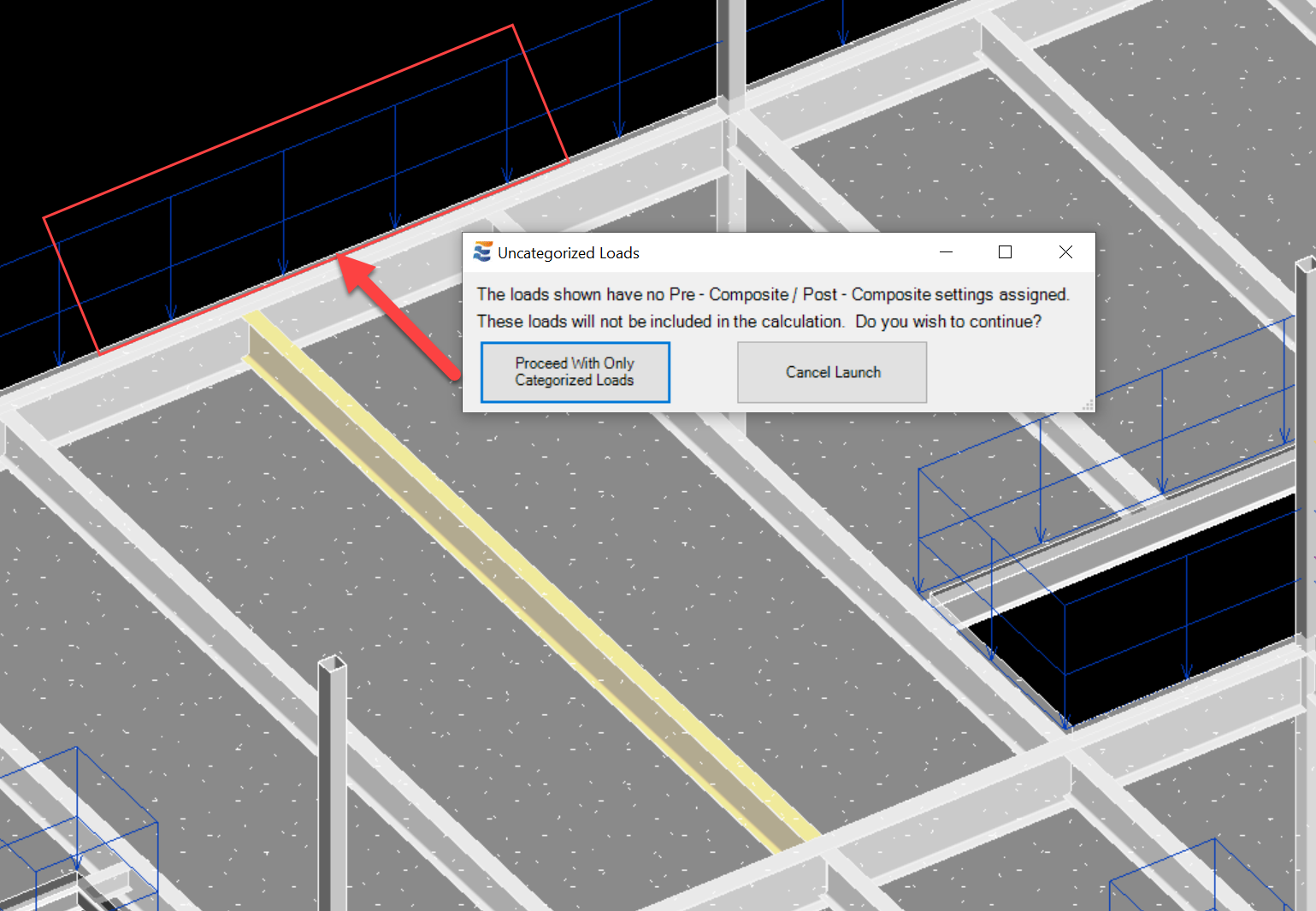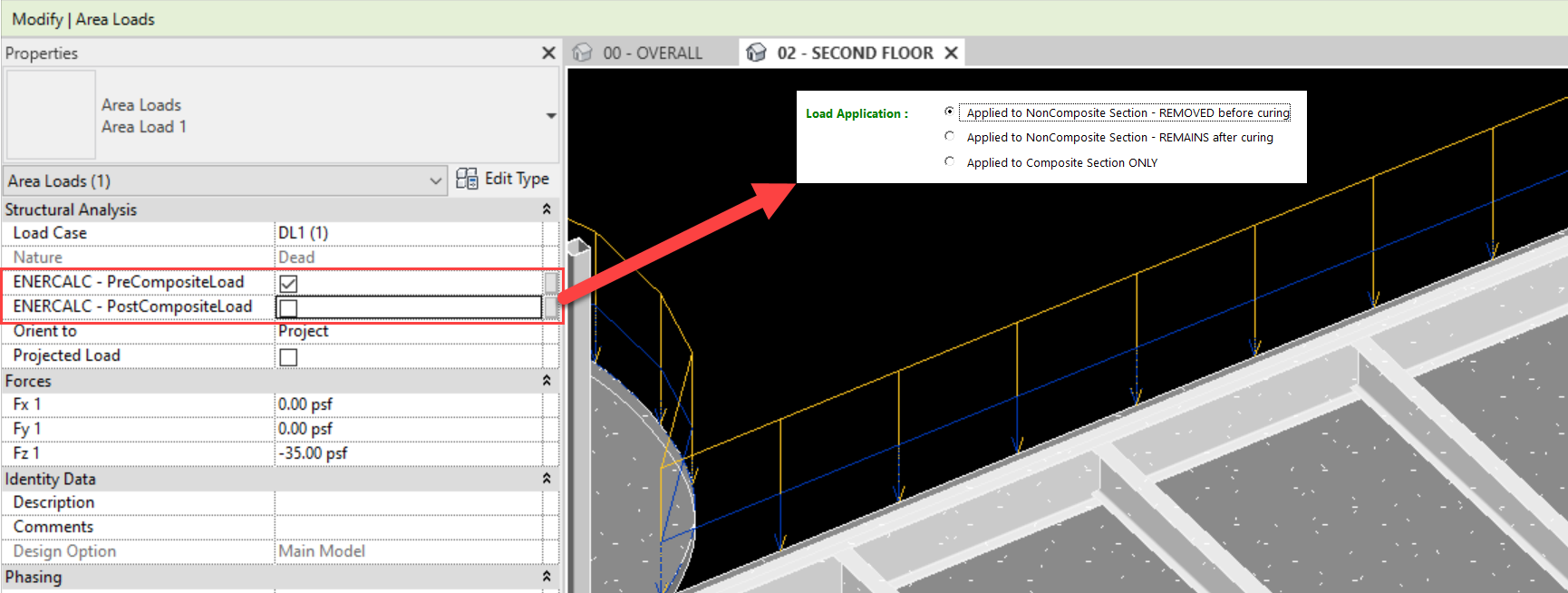The engineering behavior of a Steel Composite beam design hinges on the timing of load application. In ENERCALC SEL, Loads applied to a composite beam may occur in any of the following (3) conditions:
1.Applied to NonComposite Section - REMOVED before curing
2.Applied to NonComposite Section - REMAINS after curing
3.Applied to Composite Section ONLY
The user specifies the application state of each applied load found in the Revit model. The application state of Revit loads are set using the parameters found on the "Properties" pane when the load is selected. The default condition for an un-categorized load is for both check-boxes to be grayed out:

When launching a calculation, the user will be notified with a pop-up if any loads found on the beam do not yet have a load application state applied.
If the loads are visible (per the Visibility/Graphics settings), then the referenced loads will be selected for user attention:

The mapping of these two check-box parameters to the ENERCALC application states is as follows:



When setting these check boxes, users should keep in mind that each load case may only be eligible for specific application states. For example, wind and snow load are not eligible to be applied as "Applied to NonComposite Section - Removed Before Curing" in an ENERCALC Composite Steel Beam calculation. If a Revit load's parameters are manually set to an application state not supported by ENERCALC, they will be automatically set to a supported state.
NOTE: It is only necessary for users to specify the application state of load cases that can be applied at different stages (D and L). All other load cases (Lr, S, W, E, & H), will be automatically applied as "Applied to Composite Section ONLY" regardless of whether the user has explicitly toggled the parameters. There is no ambiguity for these cases because ENERCALC only permits them to be applied on the composite section.